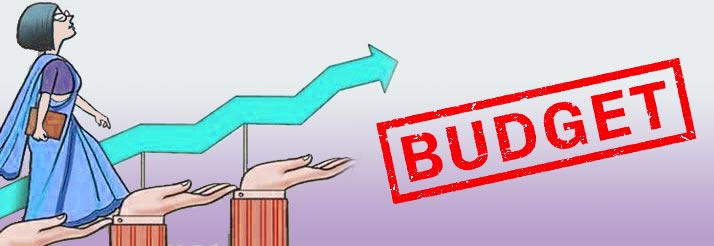Finance Minister Arun Jaitley unveiled many necessary benefits in the Union Finance budget 2018. These benefits announced will be carried away under different schemes. They will benefit rural as well as urban women. Keeping in mind the health care and financial growth of women in the country, the benefits announced in the budget are quite praise worthy.
Maternity Benefits:
As per the 2016 data, 34 out of 1000 women in India die during child birth. To bring down this rate of infant mortality, the government of India has been trying to implement various schemes over the years. The time pregnancy and 6 months after the child birth are very crucial for a woman, heath wise. Thus in the Union Finance Budget of 2018 finance minister declared that Rs. 6000 will be offered to pregnant women and lactating mothers in the nation. The funds will be released under the Pradhan Mantri Matru Vandana Yojana (PMMVY) and Janani Surakha Yojana. Women will be benefitted for the birth of their first child. Pregnant women and lactating mothers will get Rs. 5000 in 3 installments under Pradhan Mantri Matru Vandana Yojana (PMMVY). Remaining Rs. 1000 will be allotted under the Janani Surakha Yojana post delivery. The delivery should be done under an established institution like government hospital or health care centers in rural areas. Ministry of Women and Child Development will be spending Rs. 2500 crore for this scheme in the coming financial year.
Business Benefits:
Women in India, irrespective of their location are reaching high levels of success by starting their own businesses. Women entrepreneurs are becoming a strong contributor in the Indian economy and social order. To attract more women into starting their own ventures or to participate and work towards the nation’s growth, there are some very attractive benefits in 2018 Union Finance Budget. Working women as well as entrepreneurs will be benefitted across the nation.
In last few years Women’s Self Help Groups (SHGs) have proven to be a best way to empower women from rural and semi urban belt. In the upcoming financial year, self help groups of women will be encouraged to adopt organic farming under the National Rural Livelihood Program (NRLP). The allocation for National Rural Livelihood Program (NRLP) has been increased to Rs. 5750 crore. 37% of loan growth for women’s self help groups has been witnessed in 2016-17. Thus the government is expecting an increase of Rs. 72,000 crore in these loans by March 2019.
The women who work in private sector will have to pay only 8% EPF (Employment Provident Fund) which was 12% earlier. This will benefit to the new women employees in their first three years of working
Health Care:
Women in India have been fighting for sanitary and health benefits for a long time. As the time is changing government has been able to create awareness among masses in using toilets, sanitary pads and other health care products. Women’s health is one of the main issues when it comes to tackling women’s problems in India. Women have been working under very uncomfortable conditions inside as well as outside of their houses. The benefits declared in Union Finance Budget of 2018 will definitely make women’s life much better in terms of health care.
Under the Swachh Bharat Mission, the government of India will be building 2 crore toilets in the coming 2 years. These will be public as well as private toilets, especially in rural areas. By building these toilets government will be eradicate many sanitary health issues of women. Nearly 10 lakh people die annually in India due to indoor air pollution. A large number of these deaths are amongst women and children which happen due to the usage of traditional biomass fuel for cooking like wood, cow dung etc. To save the women and children from these horrible deaths, the government has come up with solution in the Union Finance Budget of 2018. Under the Ujjwala Yojana 8 crore women below poverty line will be given free LPG connections.
Finance minister also announced that Rs. 9,975 crore will be allocated to the National Social Assistance Program for comprehensive social security and protection program to every household of old, widows, orphaned children, divyaang and deprived as defined by the Socio-Economic Caste Census.










